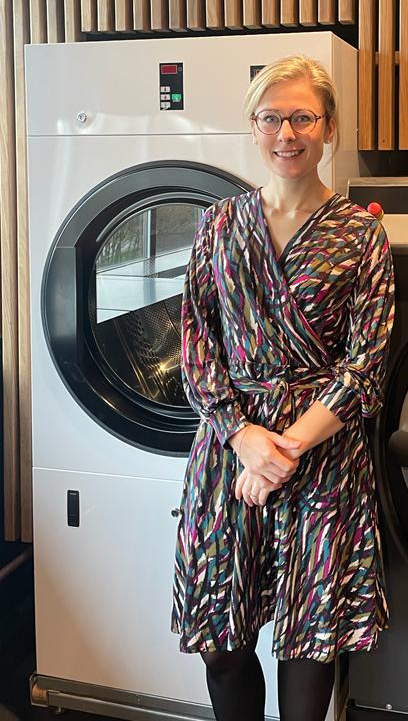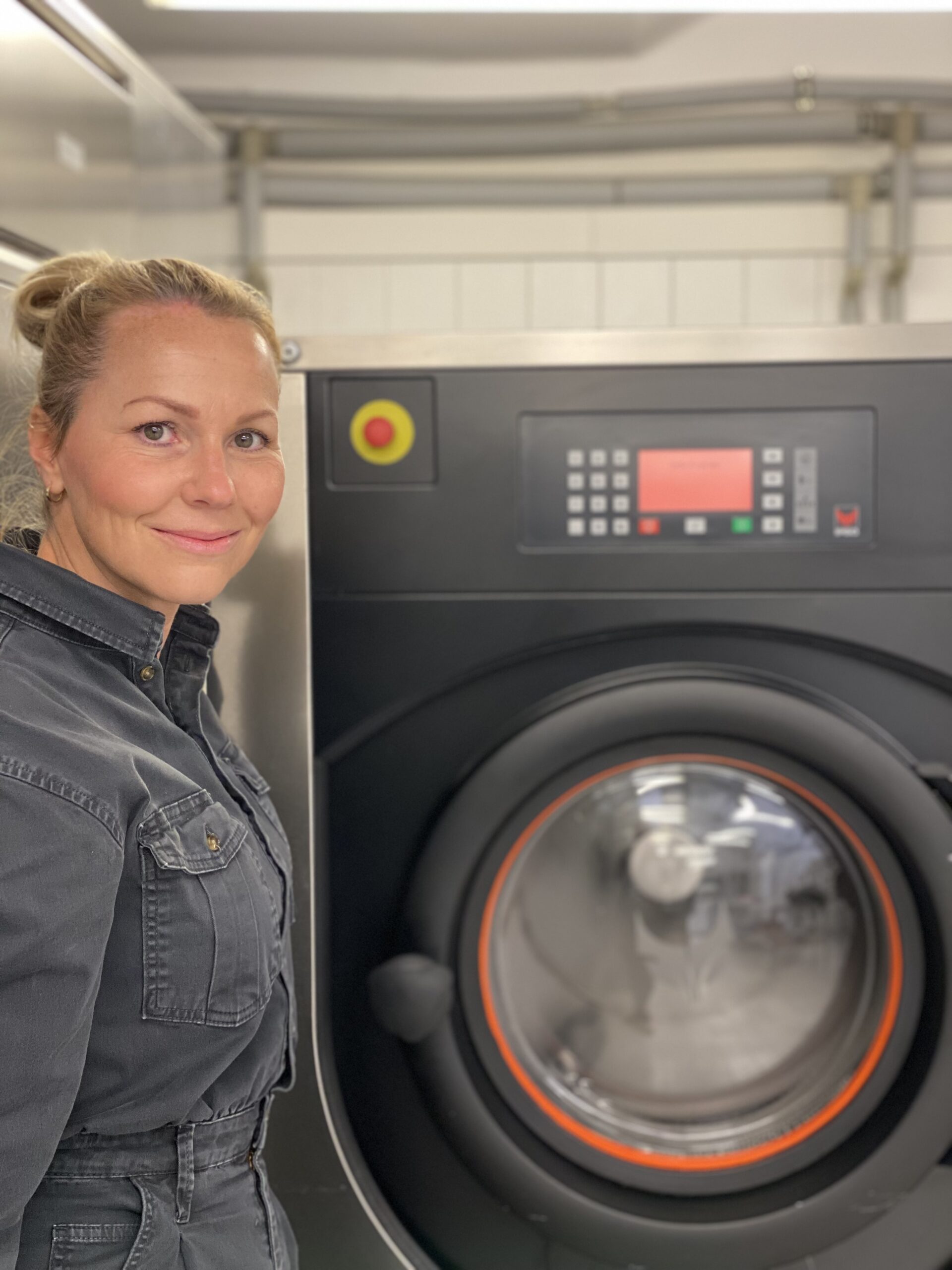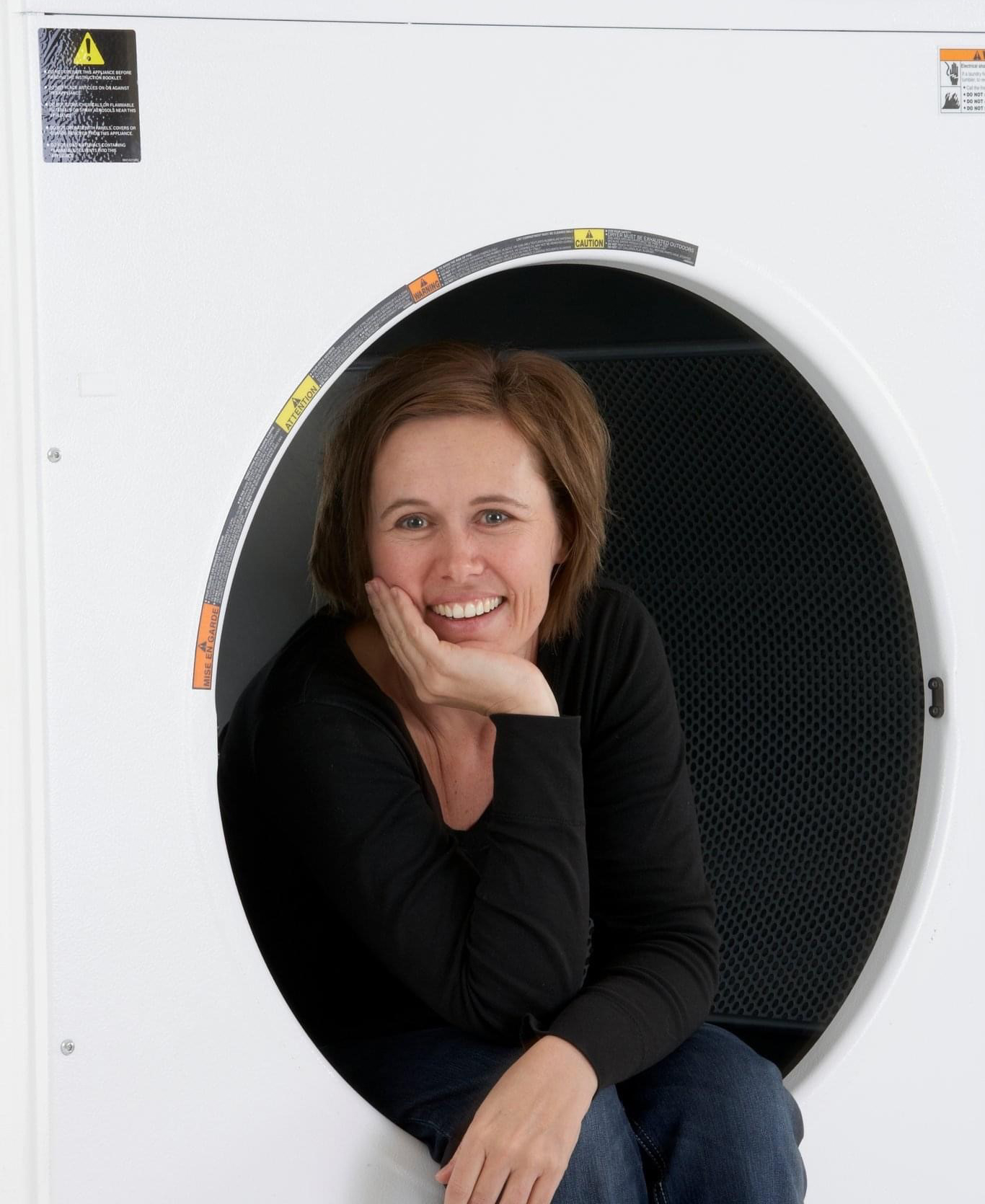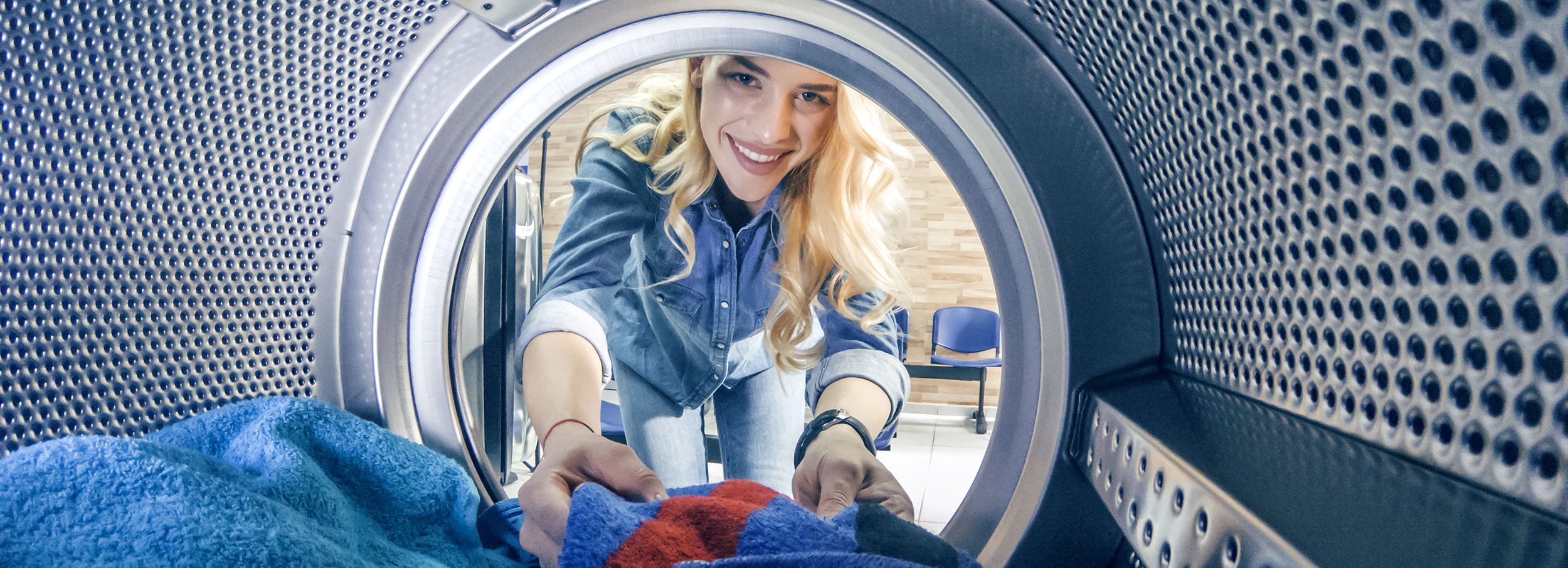“The laundry business has traditionally been led by men due to its technical nature, but nowadays there are a lot more factors that require a female perspective.”
In celebration of International Women’s Day 2022 on March 8th, we interviewed three women who have a leading position in the commercial laundry industry. Julie Stuyven (LDL Group – Belgium), Lucie Fialova (Pragoperun – Czech Republic) & Lisa Horne (Aqualogic – Australia) have been active in the laundry business for many years and work with Alliance Laundry Systems on a daily basis. All three women provided important insights on the importance of female leadership and the challenges the laundry industry is facing.
Hello Julie, Lucie & Lisa, can you introduce yourselves and your companies?
Julie Stuyven: “My name is Julie Stuyven, I am 31 years old and I started in 2013 in the family business LDL Equipment (as the only female at the time). A temporary summer job in my father’s company quickly led to a permanent position with the LDL team. LDL Equipment specializes in the distribution of industrial washing, drying and ironing equipment for anyone who washes at least once a day. This means we can offer solutions not only for laundromats and laundries, but also for a hairdressing salon, B&B or a private sauna, as well as for a hospital, residential care center, fire station, prison or other. We distinguish ourselves through our personal approach, our expertise in the field and our strong BeNeLux service team. With our hands-on mentality, it is our goal to support our customers, but above all to unburden the laundry. LDL has a turnover of €14 million euros.”


Lucie Fialova: “My name is Lucie Fialova, I am 36 years old, based in the Czech Republic, close to Prague. Our company PRAGOPERUN was established in 1991 by my father as a laundry machinery service/maintenance organization with private equity. Since 1994 we have been representing two main machinery manufacturers – one of them being Alliance Laundry Systems. Thanks to the great commitment of my father and his colleagues, the company became one of the biggest of its kind in central Europe with market coverage of 70%. I personally entered the company in 2010 & became co-owner in 2014. We currently have an average turnover of 10 million euros and employ 25 people. Our customers are from both the public and private sector. Traditionally we have been very successful as a supplier to healthcare providers, hospitality and private laundries.”
Lisa Horne: “My name is Lisa Horne and I am Managing Director of Aqualogic. We are a family-owned Australian company, operational since 1968. Our history with Ipso dates back to 1973. We operate across numerous market segments including OPL, Vend and Industrial.”

What are the female insights you are bringing to the business and what are the challenges and results?
Julie Stuyven: “Nine years later I can proudly report that the LDL team has now gained six women. The female touch has become clearly visible in our organization. In recent years the importance of the graphics and the user experience has increased. Where previously the (washing) machine was central, now much more importance is attached to the user of our machine. We do this in concrete terms by taking into account the arrangement of the machines, the loading height of the machine, the ease-of-use and various other points. The biggest challenge for the future is to give the customer experience even more depth so our users can be relieved even more. I am thinking of the automatic integration of IoT, for which Alliance has already put a lot of effort into it.”
Lucie Fialova: “The laundry business, not just in the Czech Republic, has been traditionally led by men as the field is connected with mechanical engineering. Nevertheless, the technical aspect is not the only factor when you wash linen. The women’s perspective I am trying to bring to the business is synergy. Like the Sinner circle shows, you need more factors to successfully wash your linen. Likewise when you run a laundry, you need a reliable partner who is not just a supplier of the machinery but also someone who is willing to help you. My job is mostly to find general solutions for the customer, like financing the projects, helping with technical issues, trying to be at their disposal as much as I can. It is very time consuming, sometimes also exhausting. But the results are positive. It is not just about succeeding, it is mostly the partnership or rather the friendship with the customers that really matters. And that is something that motivates me.”
Lisa Horne: “Juggling a large number of projects at once is definitely a female skill! Furthermore, I think I bring empathy and authenticity to the business. That is beneficial in dealing with both our employees and our customers as I have the ability to see their perspective.”
What do you think are the biggest challenges of the laundry business for the next 10 years?
Julie Stuyven: “Dirty laundry is an endless story. We will always have to do the laundry. Our biggest challenge will be to continue to respond ad hoc to our rapidly changing society. This depends on payment options, socio-economic developments (ordered today, delivered tomorrow) and connectivity.”
Lucie Fialova: “Since I entered the laundry business 12 years ago, energy savings have been an important topic. Over the years due to lack of manpower and high labour costs, labour productivity overtook the main role. Industry 4.0 became a big issue. Hygiene got its importance. The pandemic situation accented all the mentioned aspects and gave them an even higher priority. In my opinion, these are the challenges also for the next 10 years.”
Lisa Horne: “Customers’ expectations are continually growing. I see this as positive as it challenges our business to engage in practices of continuous improvement. The technology available offering connectivity provides unprecedented opportunity to ensure we deliver a positive customer experience. Furthermore, environmental concerns remain high priority and our manufacturers investment in research and development to improve equipment resource consumption is paramount.”

How important will connectivity become for laundry installation in Vend or OPL environments in your opinion?
Julie Stuyven: “Today we can monitor how well we sleep, how many steps we take per day and so on. Then why not how much we have washed and which programs we use the most? Connectivity will only gain in importance. However, we must watch out for the pitfall of providing too much information with too little added value. What is important to our customer? Since this is not the same for everyone (OPL vs. VENDED), we need to present the information in a streamlined way.”
Lucie Fialova: “The importance of connectivity for laundry installation is becoming significant, as many of the customers mind following data and information to improve productivity and enhance profit. In the last months energy costs have risen immensely, there is lack of qualified labour capacity. Nowadays even more than ever these factors are leading to higher importance of connectivity.”
Lisa Horne: “As noted above, this is a key component of the industry’s future. Access to information and presentation of that information in a useable and sensible format for customers across all segments has never been more important. Accurate information drives informed decisions.”
How do you think the next generation will do laundry every day and what does it mean for the Vend business?
Julie Stuyven: “In my opinion, the aspect ‘property’ loses importance. This means we no longer have to own everything. The sharing economy will become increasingly important, also in view of current ecological interests and concerns. It is my feeling that the communal washing place will become more and more established and that we will integrate a ‘vended’ application in multi housing complexes as a concept. Connectivity plays a very important role in this (reservations, digital payments). The ‘Netflix’ principle can work as an inspiration here; instead of ‘all you can watch’, ‘all you can wash’.”
Lucie Fialova: “The general mindset of the population to do laundry has changed a lot in the last 10 years. We have been experiencing great development of the Vend business. There are many aspects which affect this development but one of the most important I reflect on in our country is people becoming less ashamed to wash their personal laundry in public.”
Lisa Horne: “I think we value time and have less of it. Saving time; by using large loads, fast cycles or a drop and collect bag service will grow in significance.”
How is your company adapting to a post-pandemic world? How much has your business changed since the pandemic?
Julie Stuyven: “We note that the importance of hygiene and commercial laundry equipment has gained in value. The machines are used more intensively than before; this is because we have to clean surfaces much more, no longer using towels twice and so on. The demand for an industrial setup has increased as a result. In addition, we also see more and more attention is being paid to energy costs, resulting in higher sales of dryers with residual moisture measurement. In short, hygiene and ecology are two aspects which have gained importance and which I suspect will continue to be these requirements.”
Lucie Fialova: “Fortunately, this pandemic has changed our business in a positive way, at least for now. Hygiene became a big issue. This fact forced some of our customers to take measures to invest in new technology, just to be able to continue running their businesses. Some projects we had been working on for long time, were realized in a shorter period than planned. Also the product variety has changed. We have noticed higher demand for barrier washers and garment systems, for instance. Not to forget, due to increasing energy costs, some of the laundries initiated to change machinery in shorter terms.”
Lisa Horne: “Like everyone, we became very adept at communicating virtually! We continue to adapt regularly to everchanging conditions and regulations. I believe we have mastered the art of determining required change immediately, articulating a position and plan, and implementing that process without delay. In addition to that, we have adapted our programs and services to meet the needs of different market segments and provided support to customers who have been greatly impacted. Of course, guaranteed disinfection is more important than ever and we work with each customer to ensure our bespoke solutions, for equipment, services and training ensure they are meeting this need.”
Julie, Lucie & Lisa, thank you very much for your participation!
